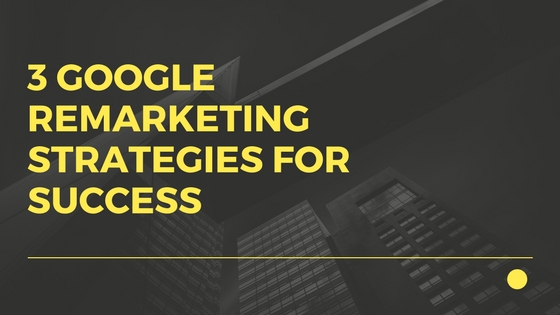Remarketing strategy, or retargeting strategy, is going to be more and more important in the digital world. What it basically means is placing a cookie, which is a small piece of data sent from your website and stored on the user’s computer by the user’s web browser.
If you are thinking about boring banners chasing you around the web, think twice. Remarketing strategy is becoming the main focus of Google and other online channels now and is getting smarter than you think.
Here are a few strategies, I would like to share with you, in order to make your remarketing strategy a success:
1. Remarketing Strategy No 1: Target customers and web visitors.
To do that you can use Google Adwords. Go to Shared Library on the bottom left hand side of the home page of your AdWords account. Then click on the red button saying +Remarketing list. As you can see on the screenshot there are several remarking strategy types – on web visitors, Youtube visitors and mobile app users.
If you choose Customer Emails you would be able to upload data from your CRM, MailChimp or any lists that you have previously acquired.

N. B. This will only work if the emails on the list are gmail accounts and the users browse logged in with this particular address! Customer lists work fine with Facebook, however expect only up to 70% of the emails to match up to Facebook profiles. I will soon publish more on Facebook remarketing strategy.
2. Remarketing Strategy no 2: Target your website visitors.
You have uploaded your customer email list. Now it’s time to segment the people you know least about – the web visitors. Google gives you the opportunity to create neat rules in order to target people according to which page they visited and also exclude the ones who visited another one.
Why is this? To the surprise of many business owners not all people who come to your webpage are there to buy. There will be a lot of people looking for information, or current customers, who want to log in their profiles if you have subscription. You want to leave these people out of your list and and spend your effort on these who are likely to convert into new customers.
By adding people who visited a product page and excluding those who have been on your “thank you” “payment confirmation” and etc. page you will create an adequate audience and avoid pissing off your clients.
Don’t forget to enter membership duration. The default is 30 days, but you must decide, if you want to follow your visitors for that long. You can also limit the times you want your ad to be shown per day in the settings of each campaign.

3. If you want to target even finer selection of visitors…
I would recommend you to build your audience in Google Analytics. To access the builder go to Admin on your home page and choose Audiences.

Here you can get really granular. Some of the targeting you can use:
- by technology, very important for mobile apps
- demographics- age, gender, location
- particular keyword they searched for
- traffic source(Facebook, LinkedIn, email, affiliate
- AdWords campaign
Two cool ways of targeting are by Affinity Category and In Market Segment. Google is dividing visitors based on the websites they visit, the YouTube videos they watch and the apps they download on Google Play. Hence a list of News Junkies, Travel Buffs, Movie Lovers and etc. The In-Market segment is categorises visitors according to their presumed buying intent. A user can stay sometimes only 24 hours in a segment, so these lists are very dynamic.

Once you click on the field you will have a list of suggestions on what is relevant for you, but you can research yourself by going to reporting=> Audiences=>Interests=>Affinity groups. This might not always be the best way to customise your audience but it gives you great ideas which websites you would like your ad to appear on more on and what your visitors are interested in.
These are a few ways to get started with remarketing strategy on Google. Of course, there is so much more, if you want to get deeper. Explore yourself and happy targeting!


